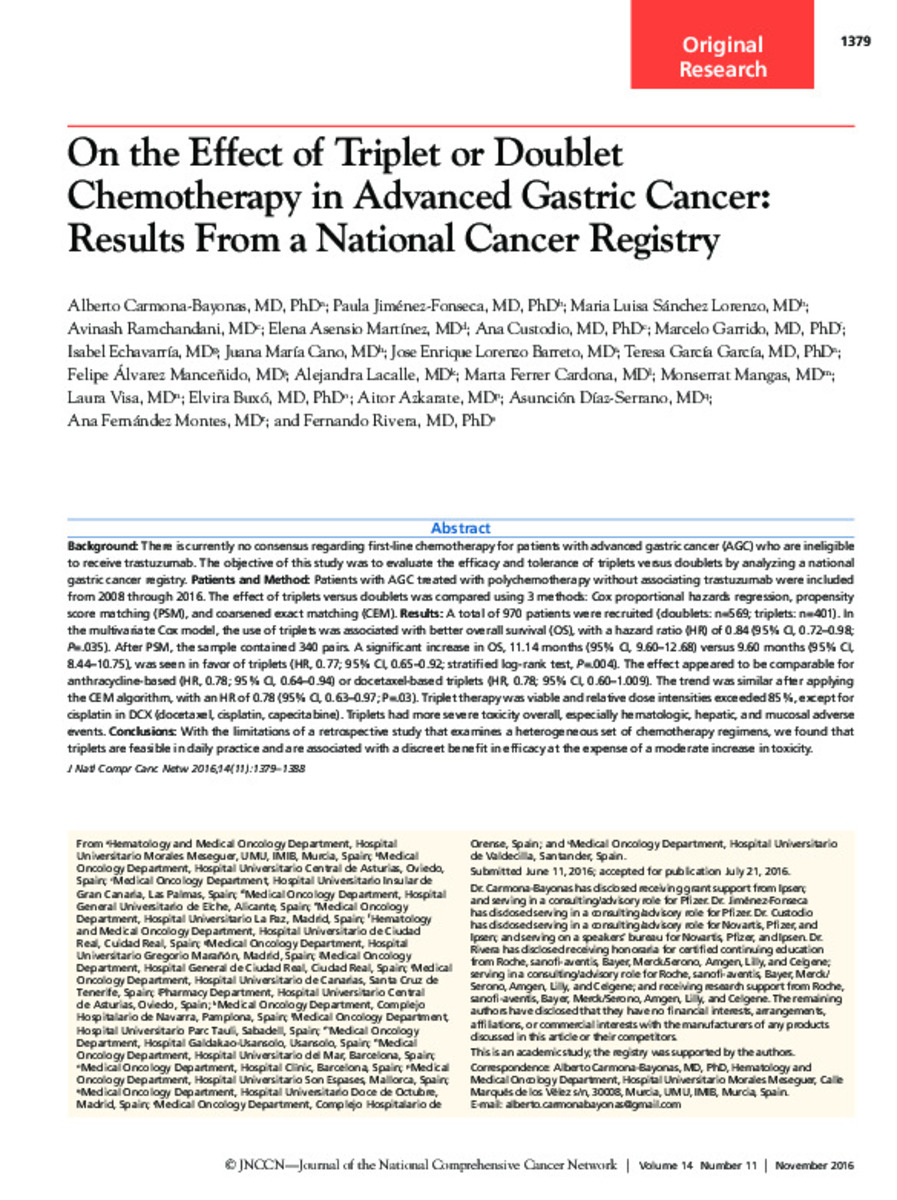On the Effect of Triplet or Doublet Chemotherapy in Advanced Gastric Cancer: Results From a National Cancer Registry
Keywords:
Advanced gastric cancer (AGC)
Trastuzumab
Triplets
Doublets
Cox proportional hazards regression
Propensity score matching (PSM)
Coarsened exact matching (CEM)
Editorial note:
© JNCCN—Journal of the National Comprehensive Cancer Network
Citation:
Sánchez-Lorenzo, M. L. (María Luisa); Carmona-Bayonas, A. (Alberto); Jiménez-Fonseca, P. (Paula); et al. "On the Effect of Triplet or Doublet Chemotherapy in Advanced Gastric Cancer: Results From a National Cancer Registry". Journal of the National Comprehensive Cancer Network. 14 (11), 2016, 1379 - 1388
Statistics and impact
0 citas en

0 citas en

Items in Dadun are protected by copyright, with all rights reserved, unless otherwise indicated.







